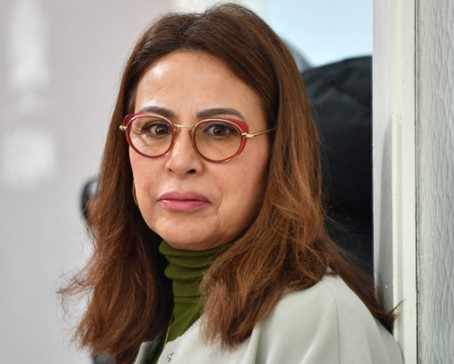
Tunisian lawyers fight to restore democracy – Interview with Dalila Ben Mbarek Msadek
Tunisia
Tunisian President Kais Saied behaves like an autocrat, says lawyer Dalila Ben Mbarek Msadek, who is assisting opposition leaders and is now being prosecuted herself.
Since the Arab Spring, Tunisia seemed to (re)find its way to democracy, but after current president Kais Saied seized power on 25 July 2021, things went downhill at lightning speed. Lawyer Dalila Msadek experienced it first hand: her brother, the lawyer and very prominent opposition leader Jaouhar Ben Mbarek was arrested in February 2023. Dalila Msadek, together with a team of colleagues, took up the defence – and is now being prosecuted herself.
By Trudeke Sillevis Smitt
Msadek: ‘Our constitution allows a president to suspend the powers of government and parliament for a month in emergency situations, subject to their approval. However, President Saied single-handedly dissolved government and parliament without consultation in July 2021. Two months later, he permanently seized all legislative power and stipulated that he may intervene the judiciary directly.’
The latter is what Msadek finds most dangerous. ‘The president can dismiss judges on his own, with no right of appeal. Under the guise of fighting corruption, he already dismissed 57 judges. Two of them were indeed corrupt, the rest refused to comply with his order to launch criminal investigations against opposition leaders.’
Smear campaign
However, those judges are still at work: the (new) justice minister who has to implement the decision is not cooperating. Msadek: ‘Since then, a smear campaign has been running against these judges. Meanwhile, journalists and politicians, bloggers and activists are detained along the same scenario every time: a police report appears with a trumped-up accusation, an arrest follows, and then it remains quiet. People can be detained for 14 months before they have to appear before a chambre d’accusation.’
And now it is the lawyers’ turn. A total of 76 lawyers have been named as suspects, eight of whom have been charged.
Dalila Msadek herself is accused of spreading fake news through the media with the aim of endangering national security, and of unauthorised disclosure of personal data related to a criminal case. Both offences are punishable by 10 years in prison.
It was prompted by two television interviews. Msadek: ‘The eight opposition leaders we are defending are accused of plotting to overthrow the state. That is punishable by death! Even though they have done nothing but prepare a meeting to march together. In September 2023, I said on television with my colleague Islem Hamza that the cases were particularly unfair and I called on the president to look into it so that he would see that the cases were not based on anything.’ Msadek also made a public appeal for the diplomats who were allegedly involved in the plot to be heard as witnesses.
There is no hope that they and the others prosecuted for political reasons will get a fair trial, Msadek says. ‘The executive intimidates a large number of investigating judges and puts a lot of pressure on them. The only hope is that he himself changes his mind.’
Is such a thing conceivable? ‘With the team of lawyers, we are doing everything we can in the conspiracy cases to keep the subject in the spotlight. The media report on it daily; fortunately, they are also combative: they have enjoyed 10 years of free press and do not want to give that up. We will not let the remaining freedom be taken away from us. And where we initially had public opinion against it, we managed to turn it around. That is a great victory. Many organisations are also speaking out on the issue. The president receives many daily messages and suffers from that pressure. The investigating judge banned any media debate on the conspiracy cases, but to no avail.’
Brother
Other success of the defence team: three of the prisoners in the conspiracy case have now been released. But the rest are still detained, including Jaouhar Ben Mbarek, Msadek’s brother. ‘I visit him twice a week,’ she says. ‘The morale among the prisoners is still good. They know what they are fighting for. We relay their messages to the outside world. They have gone on hunger strike twice against this ‘judicial farce’. We took over those hunger strikes and brought it outside. This is how we form a chain of resistance. The dictatorship will not last in Tunisia. There is so much misery and poverty here…’
Not that Msadek expects a revolution to break out today or tomorrow. ‘The people have turned their backs on politics. In the last elections, only 11 percent voted. Only when there is a viable alternative will people return to action. Until then, they are busy surviving.’
After having asked what Msadek thinks of the migration deal the EU struck with Tunisia, she is unable to answer. ‘Some issues are too dangerous to talk about.
This interview was originally written by Trudeke Sillevis Smitt and published in Dutch in the Dutch lawyers’ magazine Advocatenblad. Click here for the original Dutch version.